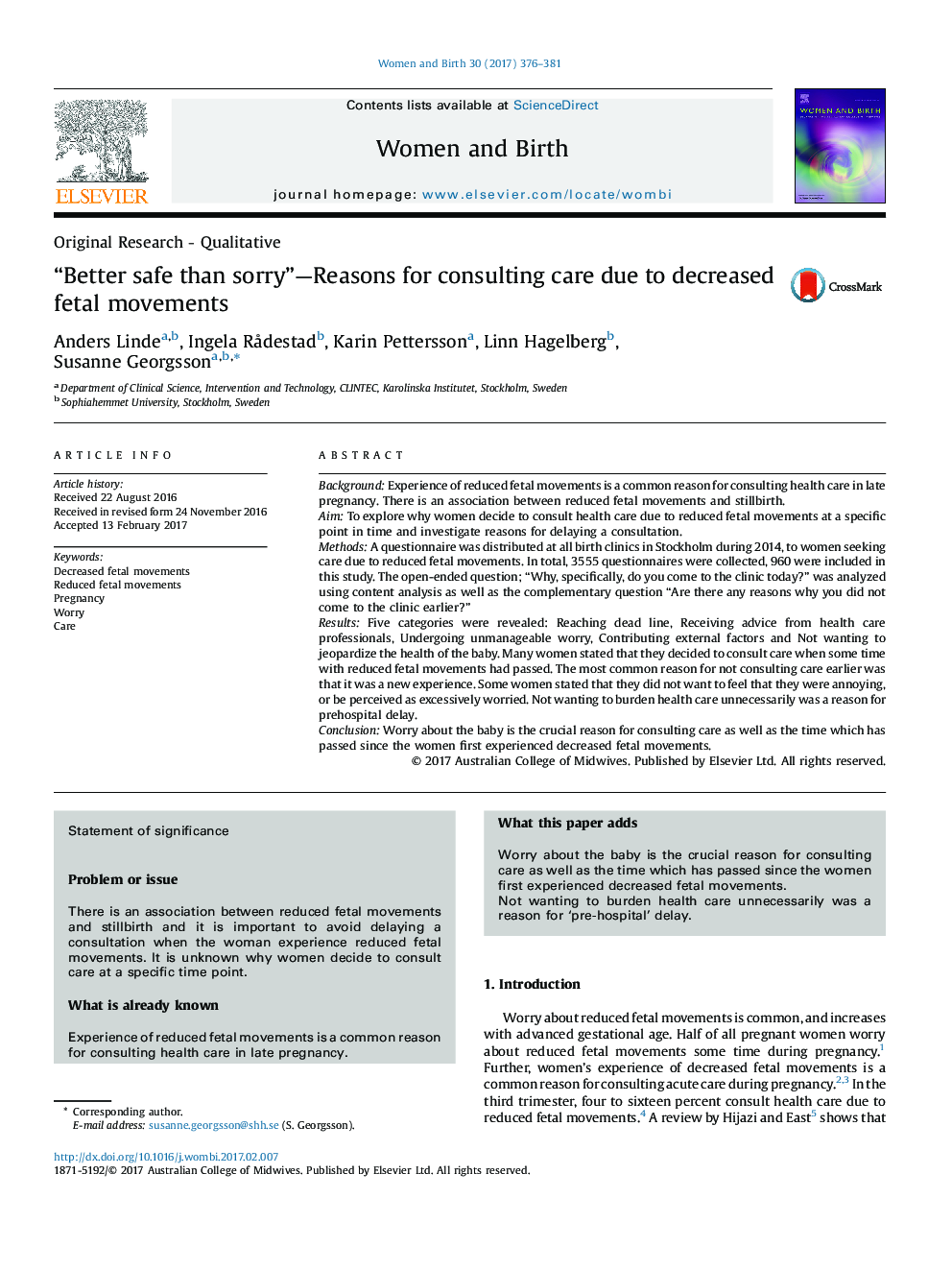| کد مقاله | کد نشریه | سال انتشار | مقاله انگلیسی | نسخه تمام متن |
|---|---|---|---|---|
| 5565967 | 1563317 | 2017 | 6 صفحه PDF | دانلود رایگان |
BackgroundExperience of reduced fetal movements is a common reason for consulting health care in late pregnancy. There is an association between reduced fetal movements and stillbirth.AimTo explore why women decide to consult health care due to reduced fetal movements at a specific point in time and investigate reasons for delaying a consultation.MethodsA questionnaire was distributed at all birth clinics in Stockholm during 2014, to women seeking care due to reduced fetal movements. In total, 3555 questionnaires were collected, 960 were included in this study. The open-ended question; “Why, specifically, do you come to the clinic today?” was analyzed using content analysis as well as the complementary question “Are there any reasons why you did not come to the clinic earlier?”ResultsFive categories were revealed: Reaching dead line, Receiving advice from health care professionals, Undergoing unmanageable worry, Contributing external factors and Not wanting to jeopardize the health of the baby. Many women stated that they decided to consult care when some time with reduced fetal movements had passed. The most common reason for not consulting care earlier was that it was a new experience. Some women stated that they did not want to feel that they were annoying, or be perceived as excessively worried. Not wanting to burden health care unnecessarily was a reason for prehospital delay.ConclusionWorry about the baby is the crucial reason for consulting care as well as the time which has passed since the women first experienced decreased fetal movements.
Journal: Women and Birth - Volume 30, Issue 5, October 2017, Pages 376-381
